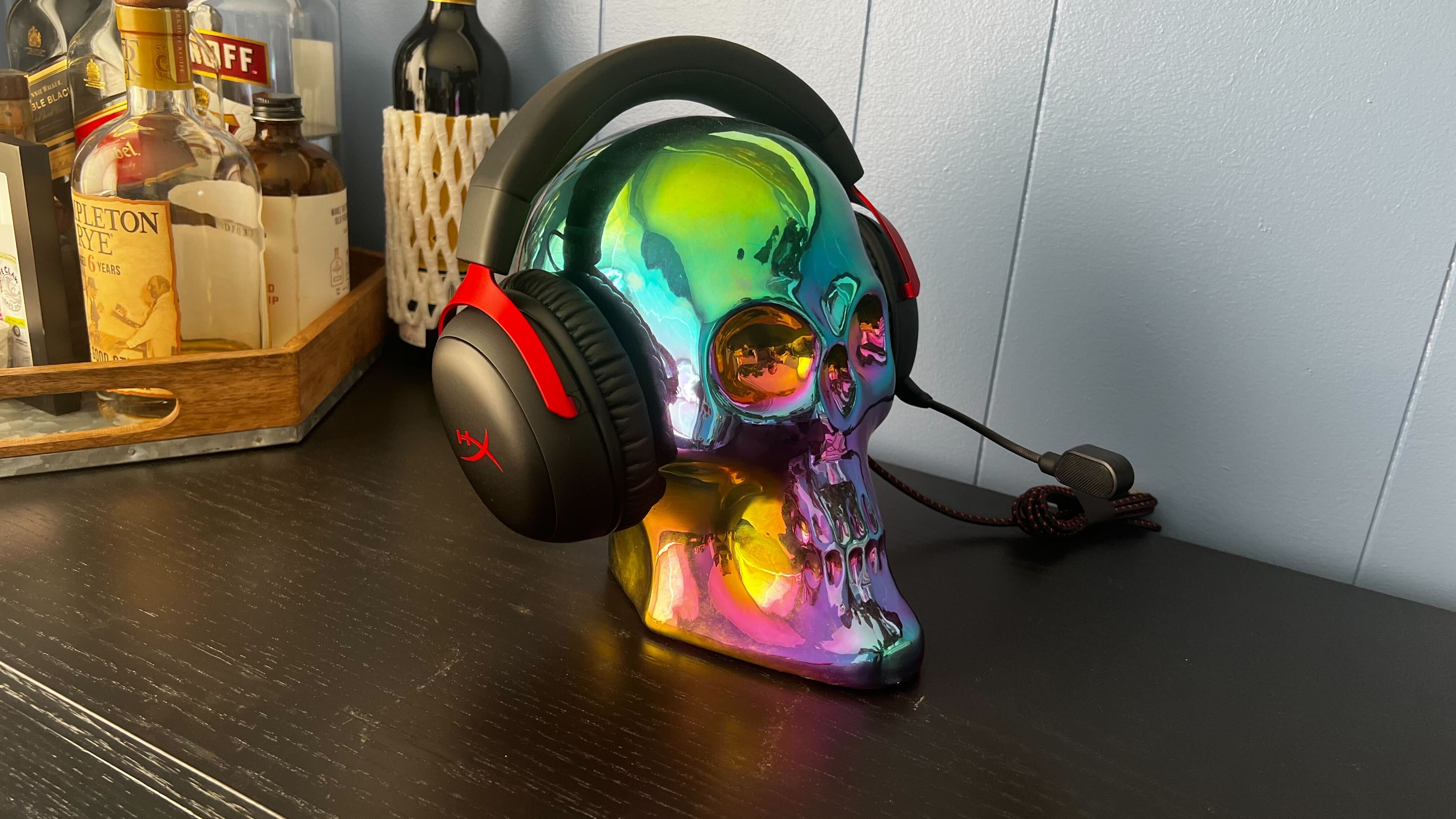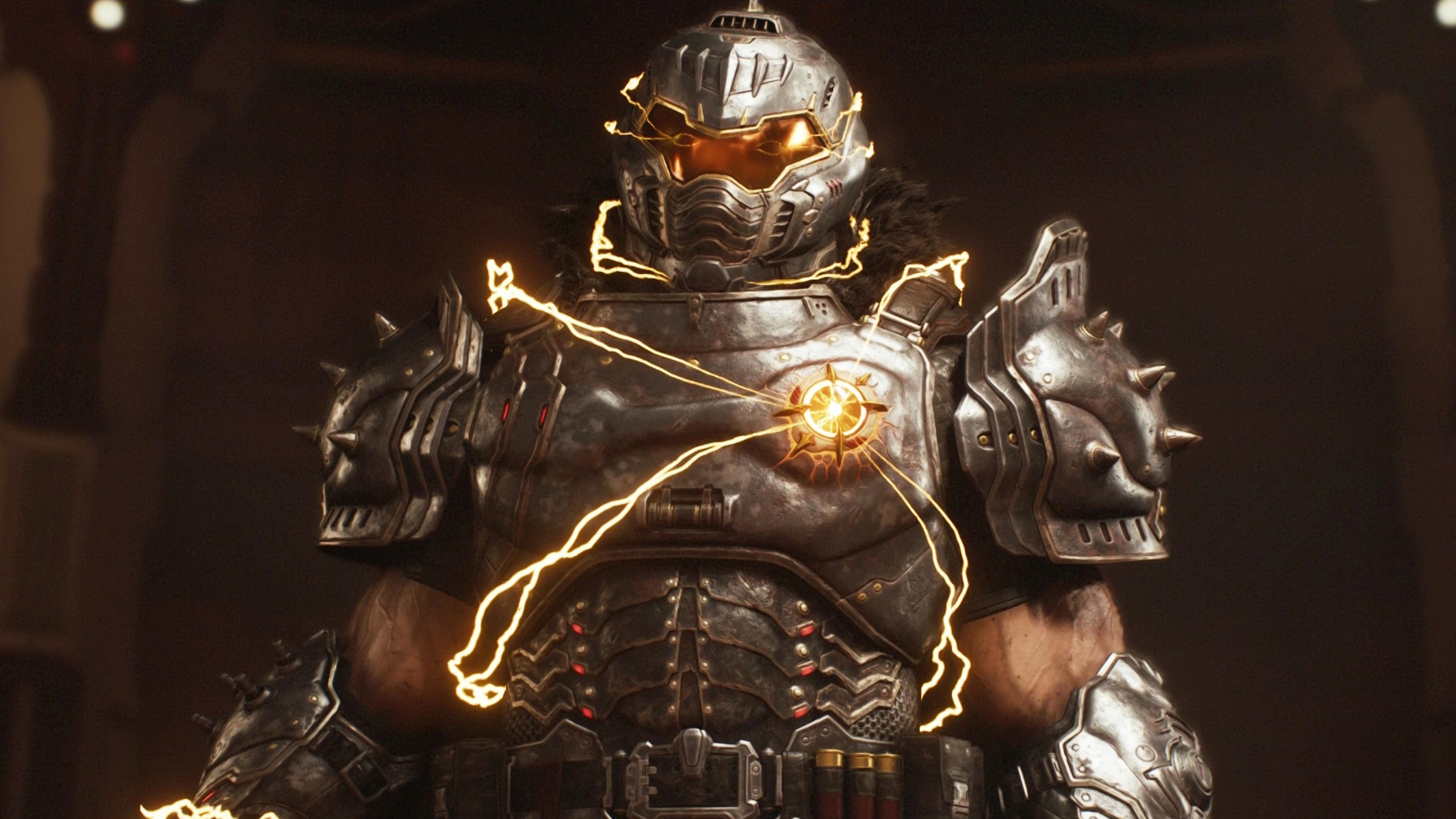
A comfy headset that doesn't quite stand out in the crowded $99 gaming headset field.
HyperX has finally replaced its popular Cloud II gaming headset with… drumroll, please… the Cloud III. It’s the company’s new mid-range wired gaming headset for $99, putting itself smack dab in the middle of a very crowded field of gaming headsets that all cost less than $100. That’s a field that includes HyperX’s own headsets as well.
Before getting into our review sample, we briefly checked out the Cloud IIIs at Computex, where Jacob tried them on for size. He said they were comfortable and sounded good. But I was curious to see how they hold up in a slightly less chaotic setting like my office than on a hot and crowded show floor in downtown Taipei.
The HyperX Cloud III retains the overall design of its predecessor, the Cloud II, with notable upgrades to enhance comfort. The plushier headband and slightly angled ear cups give the Cloud III a nicer fit, making it perfect for wearing during long, marathon gaming sessions. As for the rest of the headset, it appears that HyperX has adhered to the philosophy of “if it ain’t broke, don’t fix it,” which it appears to have followed rigidly for the past eight years since the release of the Cloud II.
Personally, I find the plush leatherette-covered memory foam earpads to be a delight, especially when wearing glasses. I’ve worn them throughout my entire work shift for a few days now, and surprisingly, I haven’t encountered any major issues. Usually, I find something to complain about when wearing headsets with bulky glasses all day long. These earpads strike the right balance, providing enough softness without exerting excessive pressure on the head while ensuring a tight fit that doesn’t compromise sound quality.
Speaking of sound, the Cloud III is still sticking with the 53mm dynamic drivers HyperX has always gone with on the standard (non-Alpha) Clouds. They provide a slightly wider frequency response than your typical 40mm driver headset at this price. I’ve been playing hours upon hours of Diablo 4 and really vibing how ominous the background orchestral tracks play over the sounds of demon corpses exploding.
In games where you aren’t carving through mobs of screaming demons, such as The Last of Us or Final Fantasy 7 Remake, you get a better sense of the headset’s soundscape, especially in those quieter, more atmospheric settings.
(Image credit: Future)
(Image credit: Future)
Personally, I find the plush leatherette-covered memory foam earpads to be a delight, especially when wearing glasses.
I was surprised at how well the bass sounded, even without the help of the Bass Boost preset on a mid-range headset. That is always a sticking point for many gaming headsets, especially at this price. Yeah, it won’t win over audiophiles, but it is definitely suitable for gaming or casually listening to music at work. I could still enjoy the thumping bass of Backseat Freestyle by Kendrick Lamar or the killer bass guitar of Be Sweet by Japanese Breakfast.
It was a more balanced sound than I expected, so you will be satisfied even if you’re not listening to bass-heavy tracks.
Unfortunately, the DTS surround sound feature doesn’t leave a lasting impression. At least not a positive one. It tends to be too subtle, making it difficult to discern whether it’s even on. If you’re seeking a headset with exceptional directional sound, better options are available, such as the SteelSeries Arctis Nova 7, albeit at nearly twice the cost. Nonetheless, the directional sound adds a certain immersive element for more atmospheric games, such as System Shock or Resident Evil 4 Remake. I just wasn’t getting it here.
All of the Cloud III’s settings can be conveniently adjusted through the HyperX Ngenuity app, which is relatively user-friendly. However, it was a hit-or-miss experience from a technical point of view, as the app sometimes failed to detect the headset. When it does work, the app offers simple customization options for enabling Spatial Sound and adjusting presets and EQs. Fortunately, the Cloud III sounds great out of the box and requires minimal tweaking. This is a relief for me since I’m not particularly fond of the Ngenuity app, and the less I have to rely on it, the better.
The wired headset provides a decent amount of connectivity options. It has a convenient 3.5mm connection, ensuring compatibility with almost anything. It also includes a USB Type-C cable and a handy Type-C to Type-A adapter. This is great if you use a single headset for PC and console gaming.
I like the recent trend of microphones on gaming headsets that sound good, not tinny pieces of garbage. The Cloud III’s detachable 10mm boom mic is clear and crisp, albeit a touch quiet, and has built-in noise canceling.
(Image credit: Future)
(Image credit: Future)
✅ You need a very comfy headset for hours of work and gaming: Even though the Cloud III design changes are subtle, it makes for an excellent fit thanks to the thicker headband and angled earcups.
❌ The wired HyperX Cloud Alpha is in stock: For $10 cheaper, you can score one of the best-sounding gaming headsets that looks almost identical to the Cloud III that’s also pretty comfortable.
My voice sounded clear during calls and didn’t pick up much keyboard noise. I mentioned that the microphone has a low recording volume (even with the mic cranked up) which could be an issue with trying to chat with teammates during a hectic shooter or if a bunch of folks is talking over each other.
The HyperX Cloud III is a perfectly fine headset that has the misfortune of being priced the same as a lot better headsets. For example, the wired HyperX Cloud Alpha is a fantastic headset, and it only costs $90, sounds excellent, and looks nearly identical to the Cloud III. Heck, even our favorite headset, the wired Razer BlackShark V2, is an even better headset than the Cloud Alpha, and it, too, costs just $99. While it’s maybe not entirely fair to compare this to an older premium gaming headset, you can’t ignore the fact that you have to when they’re all at this price.
It would be an easy recommendation if the Cloud III were priced at $70 though it would make it compete with its sibling, the Cloud Stinger 2, which is priced at around $50. At its current price, it gives me pause, as numerous better options are available at $99. This positioning leaves the Cloud III in a rather peculiar situation, where it ends up competing against HyperX’s own headsets.
That said, the HyperX Cloud III is a modest upgrade from its popular predecessor that is incredibly comfortable to wear. If you need comfort over anything else, the Cloud III is a great pick. However, if you’re looking for stellar sound and plenty of features at $99, you’ve got a load of better options.






